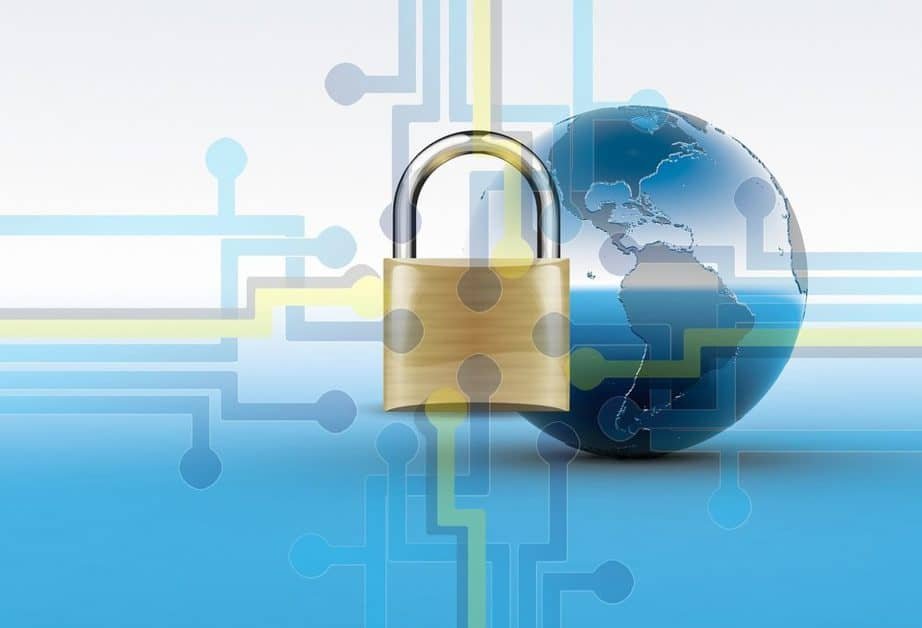Welcome to the digital age where almost everything we do requires some form of online communication. From sending emails, shopping online, or even transferring money, we are all constantly transmitting sensitive information across the internet. But how can you be sure that your private data is safe from prying eyes? This is where encryption comes in – a security measure that scrambles information into an unreadable format to protect it from unauthorized access. However, with the rise of sophisticated hacking techniques and increasing concerns over government surveillance, many people wonder if encryption can truly keep their data secure. In this blog post, we will explore whether or not encryption can be broken and what steps you can take to safeguard your personal information.
What is encryption?
Encryption refers to the process of converting information into an unreadable format that can only be accessed by authorized persons with a decryption key. The encrypted data appears as gibberish, making it virtually impossible for third parties to read or understand without the right tools.
To give you an idea of how encryption works, imagine you have a secret message that needs to be sent securely over the internet. You would first use an algorithm (a set of rules) to jumble up the letters and numbers in your message into a random sequence. This results in ciphertext – an unintelligible series of characters.
The recipient who has access to the correct decryption key would then use it to convert this ciphertext back into plaintext – readable text that they can make sense of. This means that even if someone were able to intercept your encrypted message during transmission, they wouldn’t be able to interpret its contents since they don’t have access to this special code.
Encryption is a fundamental technology used in cybersecurity today, helping organizations and individuals protect sensitive information from unauthorized access while ensuring online privacy and security.
How encryption works
Encryption is a process of converting plain text into an unreadable format, which can be deciphered only by authorized parties with the right decryption key. This technology works on complex mathematical algorithms that scramble the original message and make it difficult to read.
The encryption process begins with a plaintext message that is passed through an encryption algorithm or cipher. The output from this algorithm is known as ciphertext, which looks like a random string of characters to anyone who does not have the decryption key.
To decrypt the ciphertext and recover the original message, authorized parties use their private decryption keys that match public encryption keys used for encrypting the data. These keys are generated using sophisticated cryptographic protocols designed to ensure security and confidentiality.
Modern-day encryption techniques deploy various algorithms such as Advanced Encryption Standard (AES), RSA, Blowfish to protect data while they are being transmitted or stored in devices such as computers, smartphones or servers.
Encryption provides secure communication between users over networks and prevents unauthorized access of sensitive information by hackers or cybercriminals. It ensures privacy protection and enables safe online transactions without any worry of data breaches.
Why encryption is important
In today’s digital age, encryption has become an essential tool for protecting sensitive data from malicious attacks. Encryption is the process of converting plain text into a coded message to prevent unauthorized access to important information.
Encryption plays a vital role in securing online transactions and communication channels by making it impossible for hackers or cybercriminals to decipher messages that are intercepted during transmission. It ensures privacy and security of confidential data such as passwords, credit card details, personal identification information (PII) and financial statements among others.
The importance of encryption cannot be overemphasized especially with the rise in cybercrime activities such as identity theft, phishing scams, ransomware attacks and many others. Without encryption, sensitive data would be open to interception and exposure which can cause significant damages both personally and financially.
Furthermore, organizations handling large amounts of customer or employee data must comply with strict regulations regarding the protection of this information. Failure to encrypt this type of data can result in legal penalties due to non-compliance with industry standards.
In essence, encryption is critical because it provides peace-of-mind when transmitting valuable information between parties since only authorized individuals have access to decrypted content.
Can encryption be broken?
Encryption is a security measure used to protect data by encoding it in such a way that only authorized parties can access it. It’s commonly used for sensitive information like credit card numbers, passwords, and personal identification numbers (PINs). The question arises whether encryption can be broken or not.
Despite the fact that encryption is considered a highly secure method of protecting information, there are still ways to break it. One way is through brute force attacks where hackers use specialized software to repeatedly guess possible keys until the correct one is found. Another way of breaking encryption involves exploiting vulnerabilities in the algorithms themselves.
However, most modern encryption methods employ extremely complex algorithms and keys so that even if someone were able to break into them, deciphering the encrypted data would take an impractical amount of time and resources.
That being said, no system is completely infallible and determined attackers may eventually succeed in breaking into even the most secure systems. Therefore constant vigilance and updating your security measures should always be practiced when dealing with sensitive information online.
While encryption provides valuable protection against cyber-attacks on personal or corporate data; it isn’t entirely unbreakable. To maximize its effectiveness as a security solution users must stay informed about emerging threats & continuously update their systems accordingly.
How to protect your data with encryption
In today’s digital age, data privacy is a major concern for individuals and businesses alike. Encryption is an effective way to safeguard your sensitive information from being accessed by unauthorized parties.
To protect your data with encryption, the first step is to choose a strong encryption algorithm that suits your needs. There are various types of encryption available, such as symmetric key cryptography and public key cryptography.
Once you have chosen the right encryption algorithm, it’s important to ensure that all devices or applications that store or transmit your sensitive information are encrypted. This includes laptops, smartphones, cloud storage services, messaging apps and more.
It’s also crucial to keep your passwords secure. Use complex passwords that include letters (both uppercase and lowercase), numbers and special characters. Avoid using the same password across multiple accounts.
Regularly updating software on all of your devices can help prevent vulnerabilities in security systems from being exploited by hackers or cybercriminals.
Always back up important files so they can be recovered if necessary. Choose a reliable backup solution that uses encryption technology to protect stored data in case of theft or loss.
By following these steps and implementing proper encryption practices into your daily routine, you can help ensure the safety of your personal information online.
Conclusion
After taking a closer look at encryption, it’s clear that this technology is essential for protecting our sensitive data. Encryption ensures that only authorized parties can access and read our information while keeping cybercriminals at bay.
However, encryption is not foolproof. While modern encryption algorithms are incredibly strong, they can still be vulnerable to attacks from determined attackers who employ advanced techniques such as brute force or side channel attacks.
The best way to protect your data with encryption is to use strong and unique passwords, keep your software up-to-date, always use two-factor authentication when possible, and avoid using public Wi-Fi networks for secure transactions.
In conclusion (just kidding!), while no security measure can provide 100% protection against all threats, proper implementation of encryption remains one of the most effective methods available for safeguarding sensitive information. With continued advancements in technology and increased awareness about online safety practices among users worldwide, we may see even more robust forms of encryption in the years ahead.











FIND US ON SOCIALS